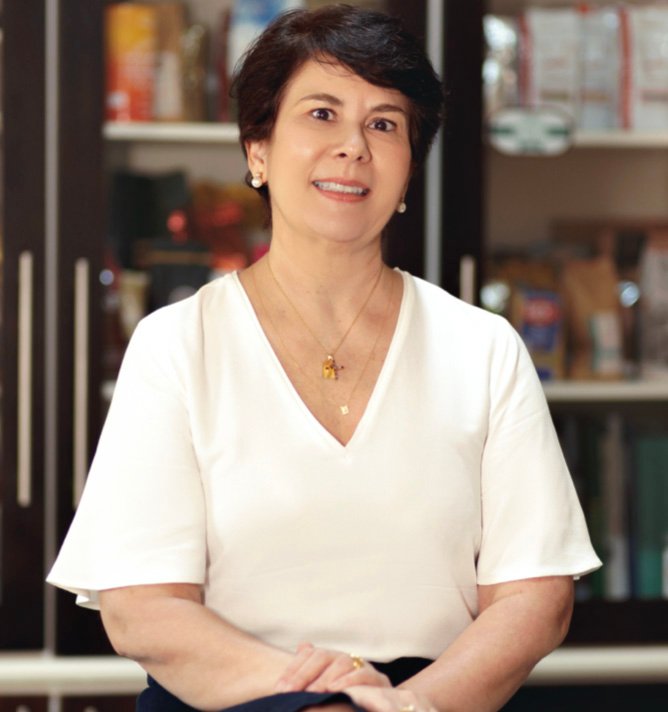A transformative shift is brewing in the coffee sector – one that embraces the principles of the circular economy in a way that works for all and leaves no one behind. This concept has been at the forefront of the International Coffee Organization’s (ICO) efforts throughout 2022-23, culminating in the celebration of International Coffee Day on October 1, 2022. This global event was a call to action for all stakeholders to reimagine coffee sector ‘waste’ as a valuable resource. By repurposing ‘waste’ into new products and alternative energy sources, we can unlock significant income possibilities and job opportunities while simultaneously lowering production costs.
The 5th World Coffee Conference, held in Bangalore, India, in September 2023, further amplified this message with its theme: “Sustainability through Circular Economy and Regenerative Agriculture.” This gathering brought together hundreds of experts and practitioners from diverse sectors – coffee farmers, industry leaders, government representatives, academics, and development partners – for a collaborative exploration of innovative solutions.
Pivotal contributions from the International Trade Centre (ITC), the ITC Coffee Guide Network’s Circular Economy Working Group, and the Center for Circular Economy in Coffee (C4CEC) have laid the groundwork for the 4th edition of the Coffee Development Report (CDR), titled “Beyond Coffee: Towards a Circular Coffee Economy.” This report builds on the insights from the ITC paper, “Making a Case for a Circular Economy in the Coffee Sector” (2024), and The Coffee Guide, 4th Edition (2021). I am proud to present this report, the culmination of over two years of dedicated research and collaboration.
Remarkably, the coffee industry generates over 40 million tonnes of biomass annually. This is an underutilized resource brimming with potential for sustainable exploitation and ‘waste’ reduction. We aim to challenge the outdated perception that coffee producers gain value solely from the coffee bean itself. The true wealth of coffee lies beyond the finite number of beans consumed daily; by enhancing resource efficiency through a circular economy approach, we can cultivate new products, create jobs, combat climate change, and protect our environment.
Our shared responsibility for the planet transcends borders, extending from global leaders to local communities. I firmly believe that everyone in the coffee sector – coffee farmers, workers, industry stakeholders, and consumers – can play a crucial role in driving the shift toward a more sustainable and resilient industry.
By embracing circular economy principles and implementing cost-effective, regenerative solutions, we can align coffee production with Climate Smart Agriculture (CSA) strategies, fostering meaningful change. The traditional linear model – characterized by inputs, transformation, outputs, consumption, and disposal – is becoming increasingly outdated and costly. Real progress in the coffee sector necessitates sustainable solutions that span the entire value chain.
The CDR 2022-23 introduces several impactful circular solutions in the coffee sector, proving that they are both accessible and economically viable. With the right policies and commitment from all stakeholders, these solutions can be scaled up, promoting sustainability, resilience, and prosperity for coffee farmers and everyone involved in the coffee journey, from production to consumption. This report aspires to demonstrate that the future of the coffee industry is not just a distant vision; it is within our grasp. By rethinking our supply chains in circular terms and fostering collaboration among the ICO and our partners, we can implement systemic and technological innovations across the entire value chain – not merely in isolated farms or cafés, but throughout the whole industry.
This report is designed to provide in-depth knowledge on the potential of circular economy in the coffee sector and to ignite action among coffee stakeholders, policymakers, international development agencies, NGOs, and bilateral and multilateral institutions. By leveraging circularity to address the challenges facing our sector, we can collectively shape the coffee industry we envision and lay a foundation for future generations to thrive. Transitioning to a circular coffee economy and adopting regenerative agricultural practices is not merely an innovative strategy; it is essential for increasing income while minimizing environmental impact, complementing traditional methods aimed at enhancing productivity.
In conclusion, I want to express my heartfelt gratitude to the ICO team and our external collaborators who have poured their efforts into this report over the past two years. Special thanks to Hernan Manson from ITC, Mario Cerutti of Lavazza and its Foundation, and Gerardo Patacconi from the ICO, whose leadership, technical knowledge and mobilization of partnerships and resources have been instrumental in bringing this vision to life. Together, let us cultivate a sustainable future for coffee.
Vanúsia Nogueira
Executive Director
The International Coffee Organization
